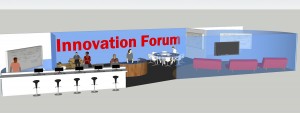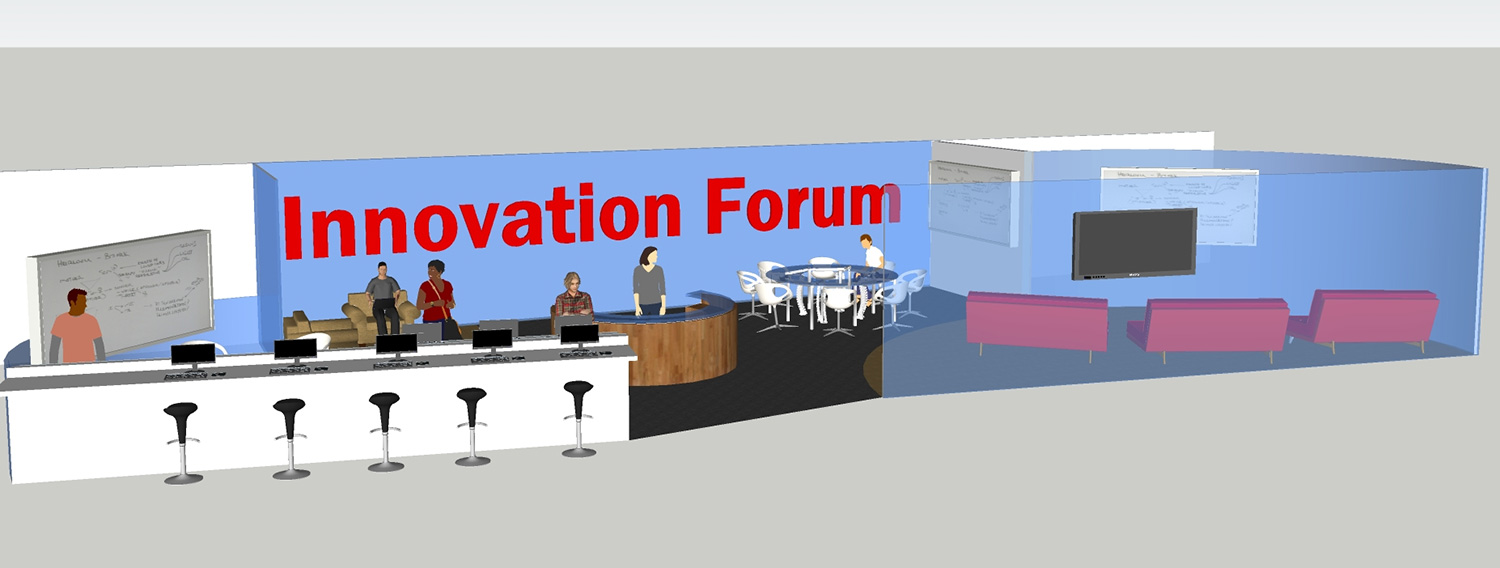
Photo courtesy BOKA Powell
By Kenney Kost/managing editor
TCC is working with BOKA Powell, a Dallas-based architecture and interior design firm, on plans to streamline the flow of ideas coming in from faculty, staff, students and the community with innovation forums.
The forums would give TCC a place on each campus to bring ideas forward and determine through a standardized process whether the idea is something that would benefit the college community, said director of strategic initiatives Cacy Curtis.
Currently, the college has no central place to bring ideas forward, Curtis said. However, a functional process is in place for ideas to get a green light. The innovation forums will simply standardize the process across the district allowing for a more transparent, cross-functional process.
“The concept would encourage cross-campus collaboration,” she said. “TCC will benefit greatly from a central place for ideas to be brought forward.”
The forums will allow ideas to get a quick go or no-go based on diversity, relevance, engagement and access, said director of strategic project development Margaret Lutton. The second factor in the decision process is the cost-impact ratio.
“If the project cost $2 million, but we see that it may only impact a handful of students, then it won’t get a go,” Lutton said. “This gives us a transparent, standardized way to look at projects based on numbers, such as how it might improve graduation rates and costs to get the greatest potential from our community’s ideas and innovations.”
BOKA Powell representative Tom Dwyer said the plan ensures that student success becomes the accountability moving forward on any project. If an idea falls in the quadrant where cost-effectiveness and student success align, the project will get a go and can then move into planning stages. It also helps for projects that get a no-go to understand why. They can be taken back to the drawing board with the knowledge of what changes are needed to get a go before scrapping an idea that could be useful with a few key changes.
“It’s important to say, this is not a good idea or not legal within the process,” he said. “Maybe the initiative does not have a positive impact on student success at this time. So the entire process becomes much more transparent to the entire community.”
The idea for the forum was established through a number of interviews, Lutton said.
“We interviewed faculty, deans, administrators and students as well as members of the community and realized, while we have processes in place, the forums will be a place for everyone to go including the outside community to have their ideas looked at,” she said.
The forums also allow for prioritization of projects. What projects should be implemented immediately and which projects need to be looked at further will be based on standard criteria for all projects across the board, Curtis said.
“The concept provides a standardized process for the continuous improvement and sharing of ideas across TCC,” she said. “It allows us to prioritize ideas through a proposed model that includes a standard by which all ideas would be measured.”
Impact on student success and the community is the driving force behind the forum plan, Curtis said.
“The innovation forum process would help to maintain project thresholds for continued service and support for the community,” she said. “It ensures that any ideas that are sent forward are evaluated both on their efficient use of TCC resources and their impact on student success.”

